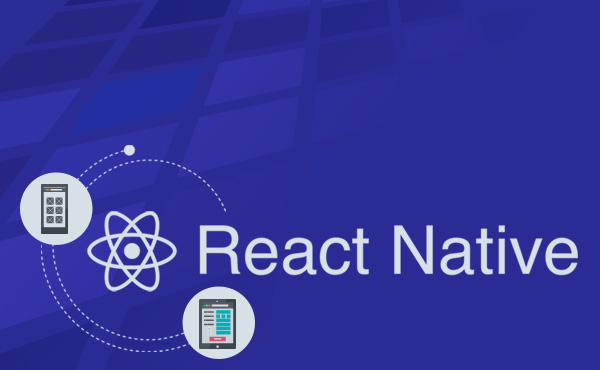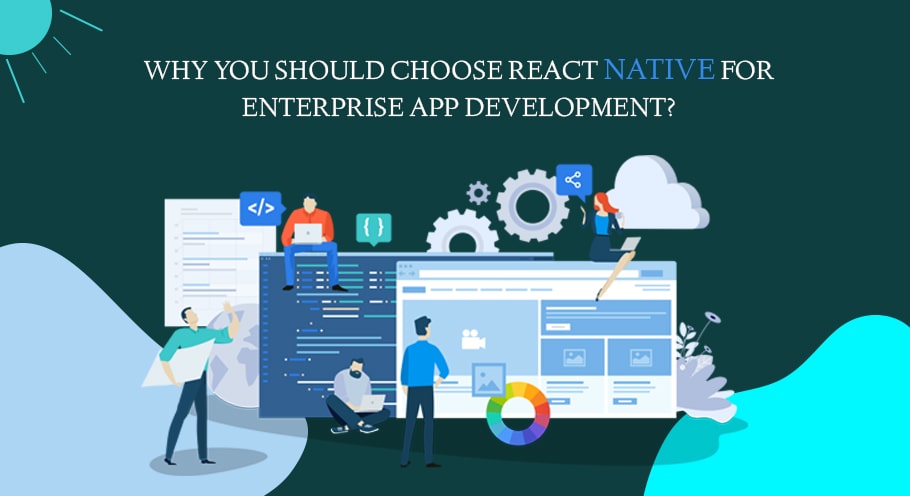Solution Begins with the Awareness of Need
Yes, to find the right solutions, you need to focus on your needs and purposes for developing applications. For example, you would definitely look for the application that satisfies your goal, achieves your target, fulfills your needs, and demands, and matches your preferences.
React Native is a framework for cross-platform mobile app development for iOS and Android. If you want to save time, money, and staff resources significantly, then React Native is the ideal business solution. This progressive technology provides traditional and modern methods of hybrid mobile app development.
For several years of work, the framework was used in world-famous apps such as Skype, Instagram, Airbnb, Walmart, SoundCloud Pulse, UberEats, Tesla, Tencent QQ, Baidu Mobile, and many others.
Why such popularity? In this article, we’ll give 10 reasons why React Native is worthy of being among the world’s top technologies. And why this powerful tool is worthy of being used in your product.

Allows Performing Development Faster, and, Therefore, It Costs Less
It’s no secret that every CEO wants to get the most benefit at a lower effort. With React Native the same code is used for deployment both on iOS and Android platforms. The business owner saves time and money by shortening the development cycle and scaling the team which is involved in a project. It can be possible to cut development efforts by almost 50% without sacrificing either quality or productivity.
Provides Cross-Platform
It means that it’s possible to get an app for two platforms at once — iOS and Android.
React Native was created by the Facebook team. As you know, these guys won’t suggest bad stuff. iOS support was released in early 2015, Android support — in autumn of the same year.
The framework integrates the pros of mobile app development with the native React’s environment agility and power.
The efficiency of Native Apps Development Increases Many-Fold
React Native is based on React ideas and, therefore, allows the creation of strong mobile apps. The development of native apps is considered to be less efficient and productive. React Native shortens the development cycle, and makes it possible to deliver products in the fastest way. The development of apps is adapted to the hybrid environment and has native results.
The framework uses the famous ReactJS UI library developed by Facebook for user interfaces and apps creating and implementing ReactJS under the hood. It transfers virtual DOM, improved app performance, and more simple programming processes from ReactJS.
Moreover, React Native has the ‘live reload’ feature, which isn’t available for other native frameworks. It allows viewing the latest code changes at once. If two screens are opened, the first one shows the code, while the second one contains a mobile screen as a result of the code.
React Native Is Among the Leading Frameworks for Cross-Platform Mobile Development
And its popularity is constantly growing. There is no need for Java, Swift, or Objective-C — for Android and IOS respectively. There is no need to hire a team of developers anymore. A Javascript developer with expertise in native UI elements, design patterns for hybrid mobile app development, and APIs is enough. React Native has strong support and constant promotion by a huge community of developers. If problems arise, JS and native enthusiasts help to fix them quickly, as well as share unique development skills and required instruments.

Focus on UI and Access to Native API out of the Box
React Native focuses exclusively on mobile UI building and compares favorably with other frameworks. It makes React Native look more like a JavaScript library than a framework.
A built mobile app is smoother and is loaded much faster than a classic hybrid one. As JavaScript interacts asynchronously with the native environment, UI feels fluid and is highly res product.
Great Performance
You would think a native app would perform better on its native platform, but you could not be more wrong. In an article by John Calderaio, comparing React native with Swift, React Native turned out better than Swift. He created two apps, one in React Native and the other in Swift. Both looked and felt the same by appearance. Both had the same features as well.
On comparing different performance metrics, React native outperformed Swift, especially in memory usage.
Easy to Transition from Native to React and React to Native Code
At any point, if you wish to transition to/from React native to the native code, you can do that without turning it into a horrible nightmare and a major development disaster. Because RN (React Native) aligns with native platform conventions (hence the native experience), with a little bit of caution and common sense, you can shift from a React Native codebase to a fully native one.
Let me throw this misconception out the window right here. Yes, using React native, you can create native applications, but that does not mean you won’t need native developers. You very much do, but how is that a benefit of using React Native?
Well, that decreases the team size. Instead of hiring a big team of Android and iOS developers, you can cut down on costs by hiring a smaller team with React Native, iOS, and Android developers.
Single Code Base for iOS and Android
It means that a single code base is deployed to multiple mobile operating systems. Components are reused anytime at any level into existing code without you rewriting it and recompiling the app.

The framework is open-source to be compatible with other platforms and available to the whole community of developers. It allows writing native modules in a comparable language and linking them to React Native codebase in a simple way. It’s needed in case you develop some features which aren’t supported for now by React Native libraries.
Transform Any Web Project into a Mobile Decision Easily
With React Native, a code is reusable. One update is needed for two platforms. It simplifies detecting bugs between codebases a lot. React Native interface is modular and intuitive. It means that developers who aren’t engaged in a project can easily understand it and take it as a basis. A team’s flexibility increases and web app updates are easier to make. QA engineers, in their turn, spend fewer hours delving into programming logic and writing relevant test cases. All this allows you to save time in transforming a web project into a mobile decision.
 October 11, 2019
October 11, 2019







